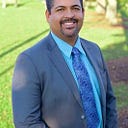Harnessing the Power of a Circular Economy for Africa’s Future
Having worked across various companies in different Western economies, I’ve come to deeply appreciate how these economies leverage the concept of a circular economy to grow wealth efficiently. Whether it’s through e-commerce, infrastructure, or digital licensing, they know how to turn their dollars over and over again, creating a cycle of sustained growth and reinvestment. As I reflect on this, I realize there is so much we can do in Africa to adopt and adapt these principles, especially in my home countries of Zambia and Zimbabwe.
My journey began in Austin, Texas, where I worked for an e-commerce company that generated over $20 million in sales annually. The efficiency of the systems we built and the infrastructure we had in place allowed us to scale quickly and tap into a global market. I later moved to Raleigh, North Carolina, to work for an e-licensing company and then to Toronto to work for GHD, a global infrastructure giant. GHD, known for its iconic projects like the Burj Khalifa and a massive canal in California to alleviate drought, has over 20,000 engineers worldwide. Despite its global reach, I couldn't help but think: why hasn’t Africa, especially my homeland, benefitted from such large-scale infrastructure projects?
In my village in Zambia, my cousin lost 30 cows due to drought. It’s a painful reminder of how climate change has devastated both Zambia and Zimbabwe. If we had more accessible water, those cows could have survived, and my cousin’s livelihood wouldn’t have been destroyed. But the more I thought about it, the more I realized: we have the resources, particularly gold, to fund our own infrastructure projects.
Imagine if we could hold 2,500 kilograms of gold and collateralize it to fund water projects, creating canals that would prevent future droughts. This type of project could generate $500 million in revenue. Beyond water projects, we could fund major urban developments and infrastructure improvements in cities, all by integrating platforms like bidsandtenders.com that I worked with in Canada. Using blockchain technology, we could record every transaction, every tender, ensuring full transparency. All the bonds for these projects could be backed by our Afro Gold Dollar Stablecoin, creating a circular economy that builds upon itself.
But we can’t stop there. We need to be deliberate about who benefits from these projects. I envision a future where these massive infrastructure investments are directed to Black-owned companies, especially from the US. This would not only create opportunities for diaspora communities but also help grow wealth in historically disadvantaged regions. From infrastructure projects in Africa to real estate developments in Black neighborhoods across the US, Canada, the UK, France, and Brazil, we can create a true global circular economy that benefits the entire Black diaspora.
My time working on Bay Street in Toronto, especially with Zimbabwean colleagues who ran global insurance companies, showed me the power of financial markets. I even had the privilege of meeting Dr. Nigel Chanakira, Zimbabwe’s first Black Investment Banker. He opened the first Black bank in Zimbabwe and is now helping us navigate the complex regulatory environment in Africa. His wisdom and experience are invaluable as we push forward with our ambitious plans.
We are also working with strategic partners like CoinChange, which helps us safeguard our customers’ funds while providing a high yield. Through our joint venture with Dandelion Blockchain, a Layer 1 blockchain, we’re launching NdeipiCoin, a utility token that will power our platform. Customers will be able to borrow against their assets and receive Afro Gold Dollar Stablecoins, which can then be used to make payments and enable e-commerce.
But our ambitions don’t stop there. We’re looking at how we can support real estate, mortgages, and entrepreneurship. Through reverse mortgages, we could allow people to start businesses, invest in property, and grow wealth. We also see an opportunity in tokenizing cattle, providing farmers with insurance and access to capital by using their livestock as collateral. This innovation could revolutionize farming in rural Africa.
By leveraging the lessons I’ve learned from working in the West, we can build a circular economy in Africa that empowers people, builds infrastructure, and creates lasting wealth. From water projects to blockchain technology, the potential is limitless. Together, we can turn Africa’s vast resources into prosperity for all.
